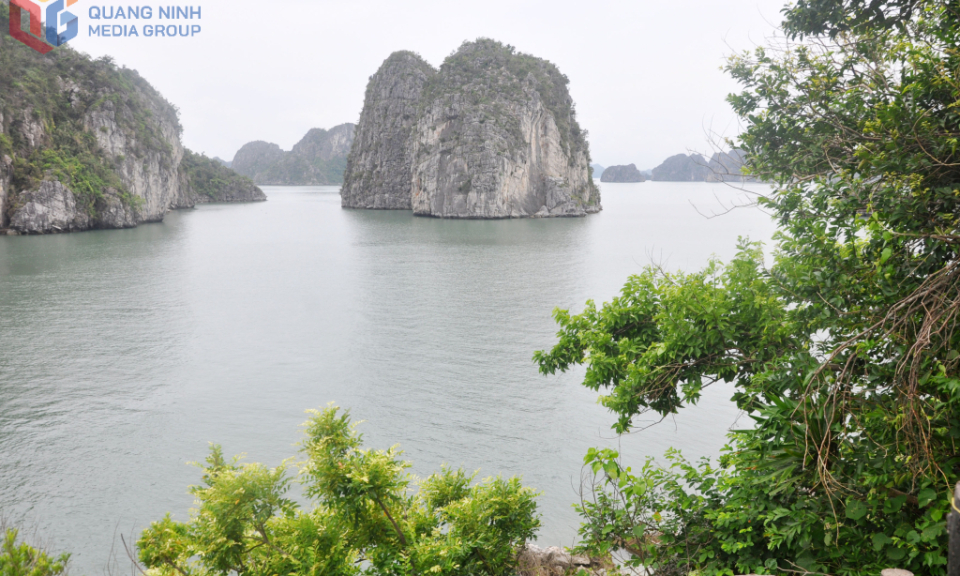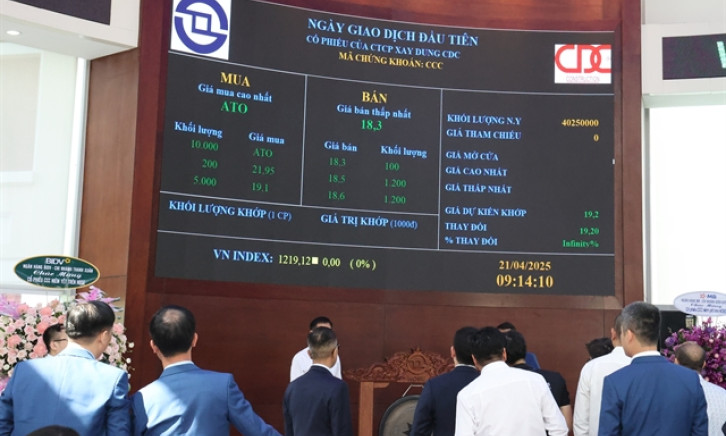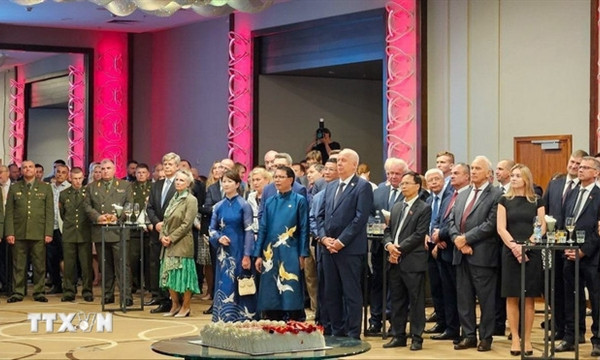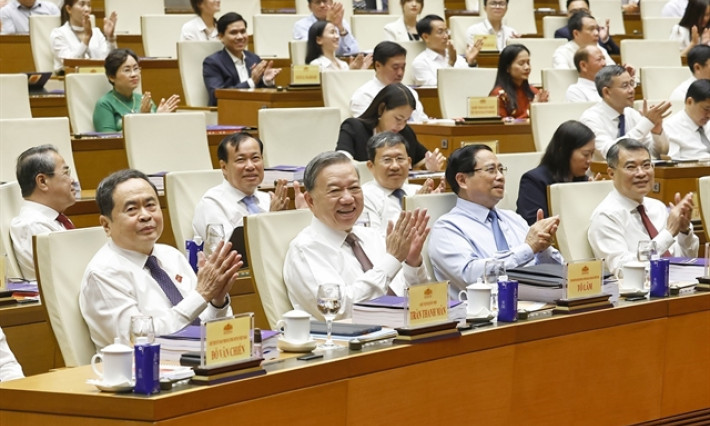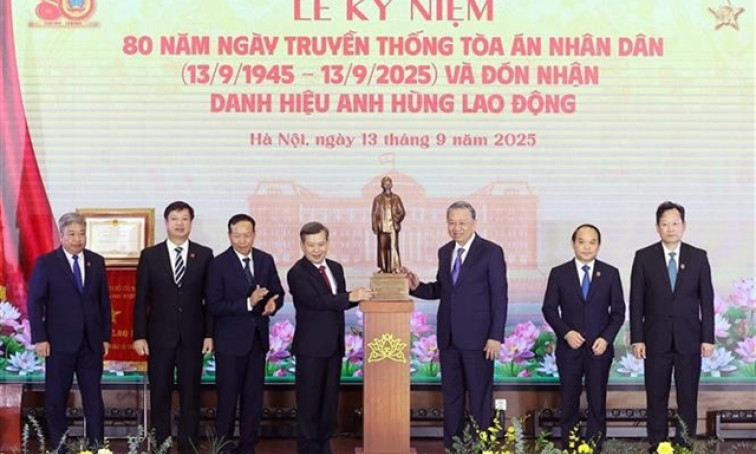Awakening the potential of agricultural and rural tourism
According to the Ministry of Agriculture and Rural Development, Vietnam currently has more than 1,300 tourist zones and attractions under the management of localities; of which, about 70% are tourist destinations in rural areas.
This is considered an important resource in order to promote rural development, create jobs and incomes for people, promote rural economic restructuring, and at the same time preserve traditional cultural values and environmental protection.
In recent years, agricultural and rural tourism has seen strong development, bringing new nuances and vitality to rural areas. Thanks to creative ways of doing things, promoting different advantages and values, agricultural and rural tourism have brought many practical benefits.
According to economic experts, agricultural and rural tourism has been a new direction, bringing a "new breeze" to rural people across the country. This is a new direction, in line with the current strategy of agricultural economic development in the direction of green agriculture development.
New thinking
Ha Giang was one of the first localities in the country to develop rural tourism with the dual goal of improving people's living and income in association with building new rural areas. In order to form community-based cultural tourism villages, the province has implemented programmes and policies to support people over many years.
The focus is on investment in completing infrastructure, renovating the landscape, preserving the traditional cultural values of ethnic minorities. Up to now, 100% of cultural and tourist villages have national grid electricity and car access; 272 households providing homestay services have been supported by the province with a total of more than 16 billion VND to build new sanitary works that do not pollute the environment, purchase equipment, improve the landscape, design traditional houses and so on.
In addition, the province also regularly opens training courses to improve tourism skills for people. As a result, the value of the Dong Van Karst Plateau Global Geopark, the heritage area of the Hoang Su Phi terraced fields, and the unique cultural traditions of the 19 ethnic groups living in Ha Giang have been preserved and promoted.
Sin Di Gai, Head of Lo Lo Chai village, said that the village currently has 32 households providing homestay services, the average number of visitors per month is about 1,000. Through accommodation services, households have income from 10 million to 30 million VND/month. The village has also formed groups of households doing ancillary services such as groups growing vegetables, groups raising black pigs and chickens, groups planting buckwheat flowers and so on.
Rural tourism has contributed more and more to the economic development of new rural communes such as creating new job opportunities, boosting production and selling local products, providing tourism services, etc. These activities have helped the improve income and quality of life of local communities. Besides these, the village has also changed in a more modern direction. Vice Chairman of the People's Committee of Ben Tre City, Nguyen Van Thuong
Groups of households have close links with families doing accommodation services, so many households have the same source of income from tourism, tourists also enjoy quality food and resort services. From a village with more than 80% poor households, thanks to tourism, Lo Lo Chai village now has only 10% poor households.
With the incentives of nature along with many unique cultural heritages, people in the new rural communes of Ben Tre province have also boldly developed rural tourism, bringing a new face to the village in the direction of green and beautiful rural areas. In Nhon Thanh Commune, Ben Tre City, the locality has developed rural tourism since 2008 with the formation of homestays, currently with 11 accommodation establishments, which can serve 1,500 visitors/day and 250 guests per day.
Huynh Van Muoi, owner of Muoi No homestay was one of the first farmers in Nhon Thanh Commune to switch from agricultural production to tourism. Muoi bragged to us that even though he was only in 7th grade and was only used to farming, when he switched to tourism, he learned everything from how to receive guests, simple English communication and so on.
Thanks to tourism, his family's agricultural products are "exported" on the spot and the price is three times higher than sale to traders. The entire area of 8,000 square metres of land has been converted to tourism, building homestays for guests to rest is also ten times more profitable than planting slices and weaving mats.
Tourism development is gradually becoming an important economic sector of Nhon Thanh Commune in particular and Ben Tre City in general. With the advantage of being half urban and half rural, besides developing entertainment services for tourism in urban areas, Ben Tre City has also developed rural tourism in association with new rural construction.
Vice Chairman of the People's Committee of Ben Tre City, Nguyen Van Thuong said rural tourism has contributed more and more to the economic development of new rural communes such as creating new job opportunities, boosting production and selling local products, providing tourism services, etc. These activities have helped the improve income and quality of life of local communities. Besides these, the village has also changed in a more modern direction.
New clothes for rural areas
From daring to think, daring to do, being ready to change their thinking from traditional production to combining with rural tourism, many households now have enough to eat, even become rich. Nam Hong Village, Thong Nguyen Commune, Hoang Su Phi District (Ha Giang) is home to more than 40 households of the Dao ethnic group. In 2017, the households in the village established the community tourism cooperative in Nam Hong Village.
Director of Nam Hong Community Tourism Cooperative, Trieu Menh Kinh said currently, the cooperative has 30 bungalow houses and 12 homestay houses in member households, serving a maximum of about 200 visitors/day. As tourism develops, people in the village are always conscious of preserving the culture of the nation, restoring the lost traditional culture, especially the fire dance festival of the Dao people.
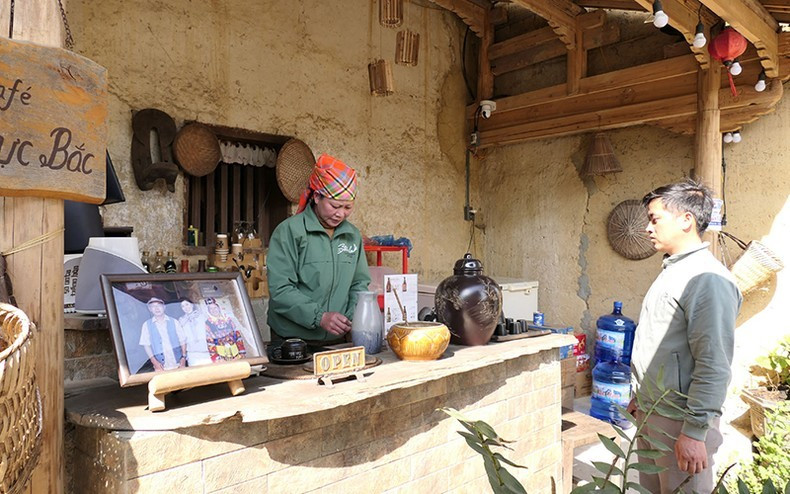
The households in the village have also invested in repairing their houses, preserving the natural landscape and the clean and beautiful environment. The life of people in the village is better than before, every house has a source of income, the poverty rate in the village has decreased significantly. Thanks to tourism development, the village has maintained the criteria for building a new countryside area and is implementing enhanced criteria for the new countryside.
People of the Mekong Delta province of Ben Tre have also developed rural tourism. Currently, in new rural communes, tourism infrastructure has been invested in. In Ben Tre, the development of tourism has also been contributing to the preservation and promotion of rural cultural values.
The effect of agricultural and rural tourism shows that this is a right direction in the development of household economy in particular, rural economy and agriculture in general.
However, according to Minister of Agriculture and Rural Development Le Minh Hoan, many models are spontaneous, copying each other, lacking differences and cohesion. Many tourist destinations have not yet cooperated with each other, not interested in sharing benefits with the community.
Promotion, connection and consulting activities have not been well-oriented. Supporting mechanisms and policies have not yet become the driving force to develop a tourism industry that brings both economic and social values. Therefore, it is necessary to implement many radical and synchronous solutions to make tourism move towards sustainable values.

